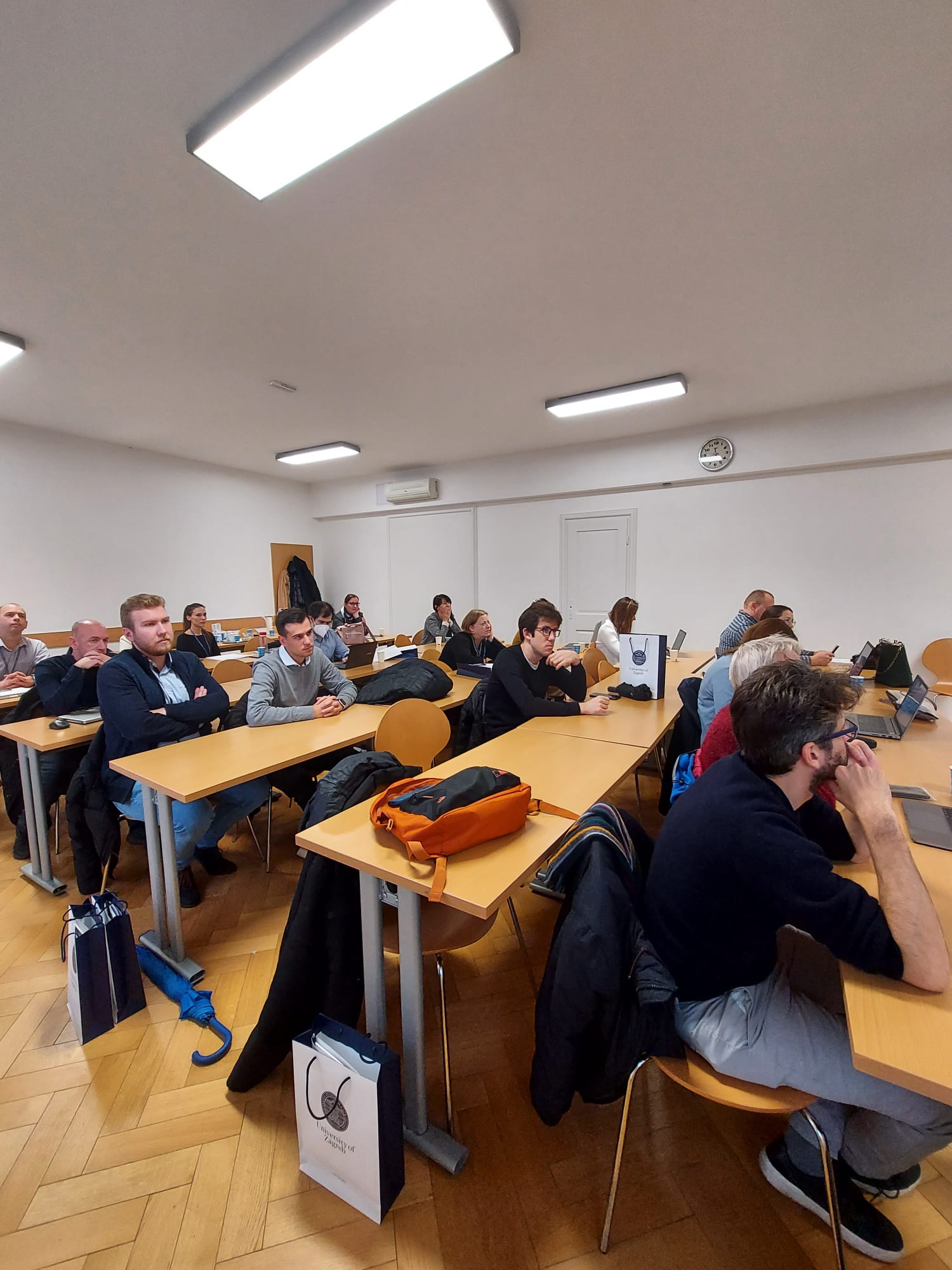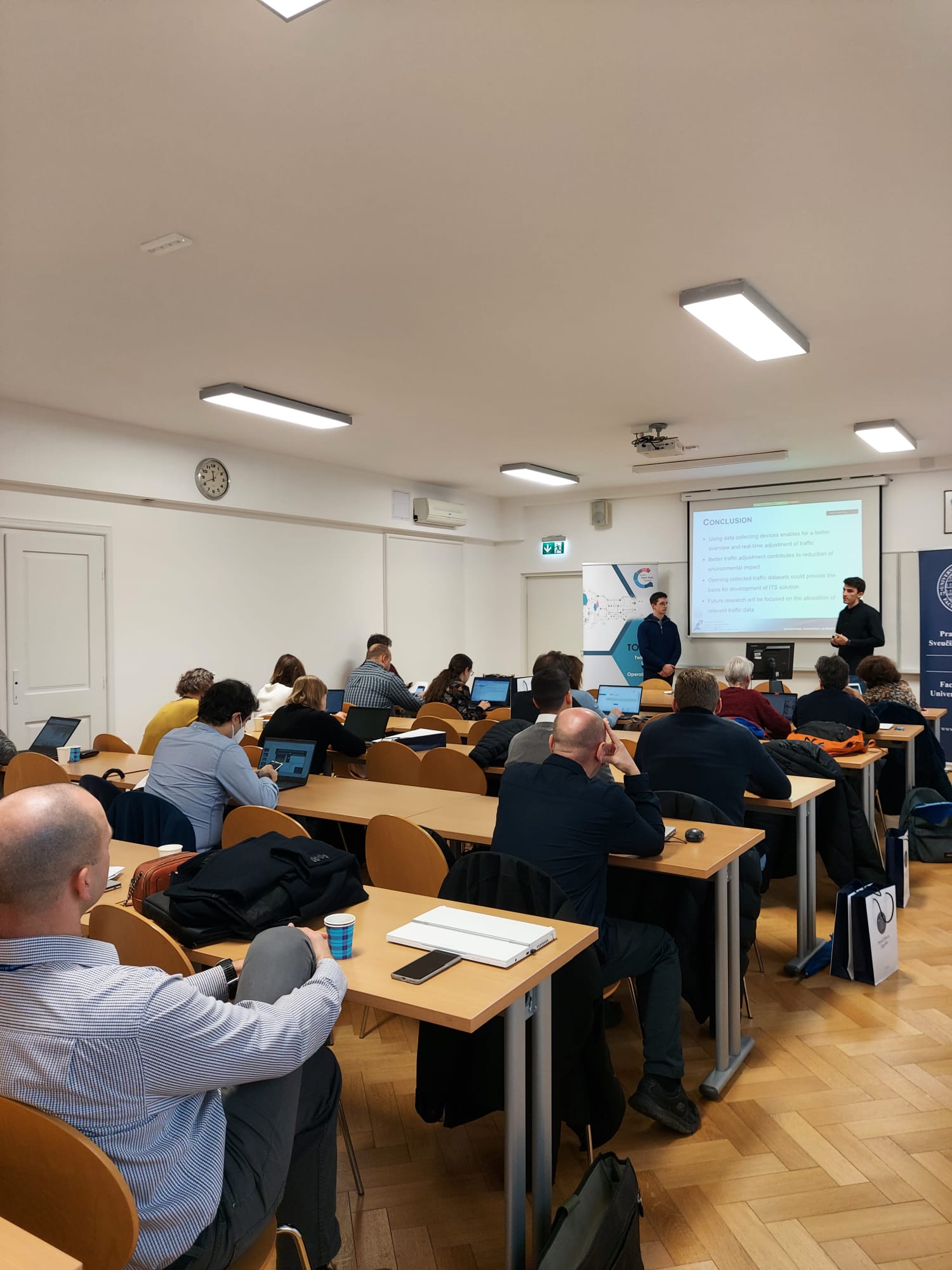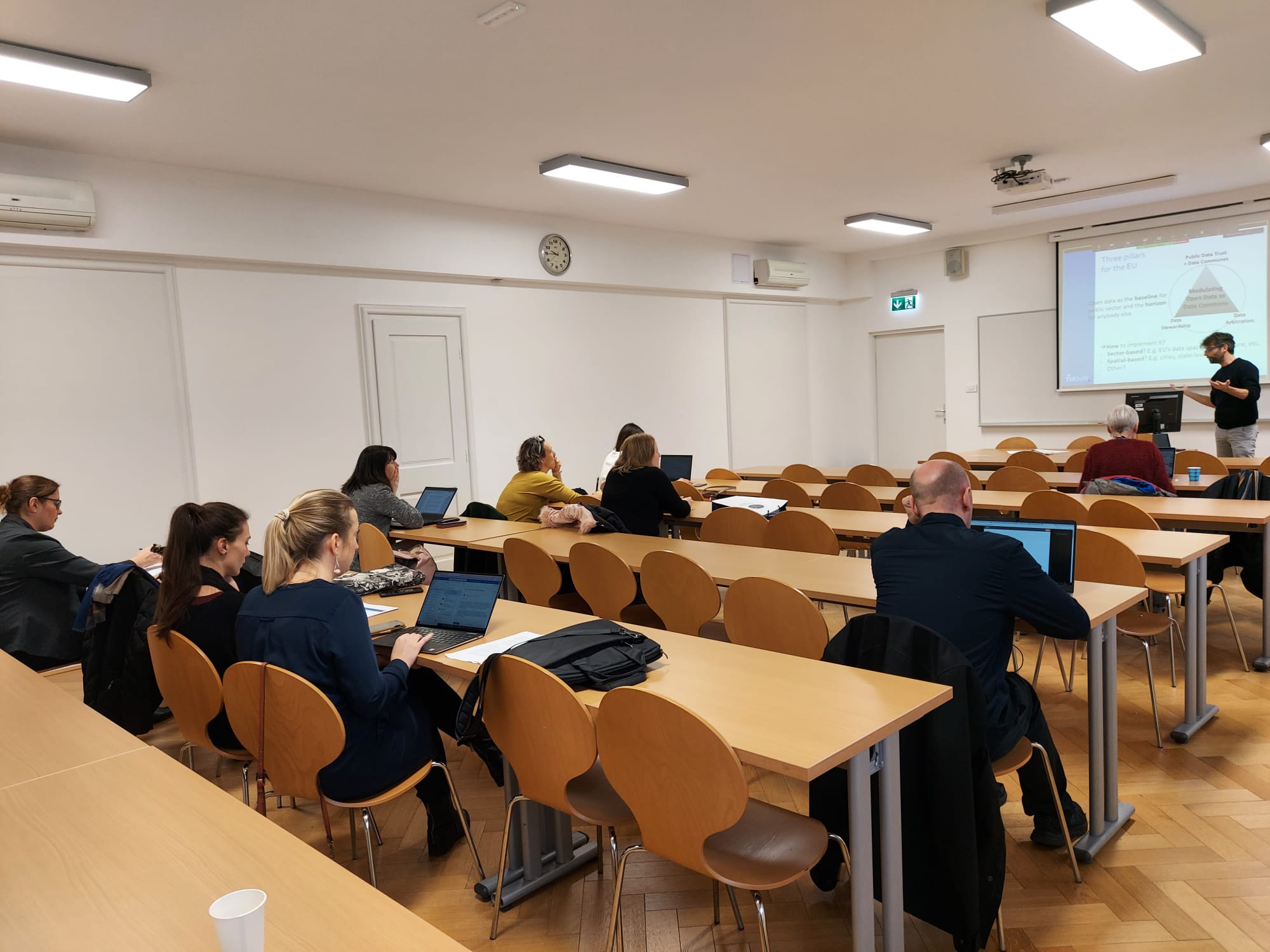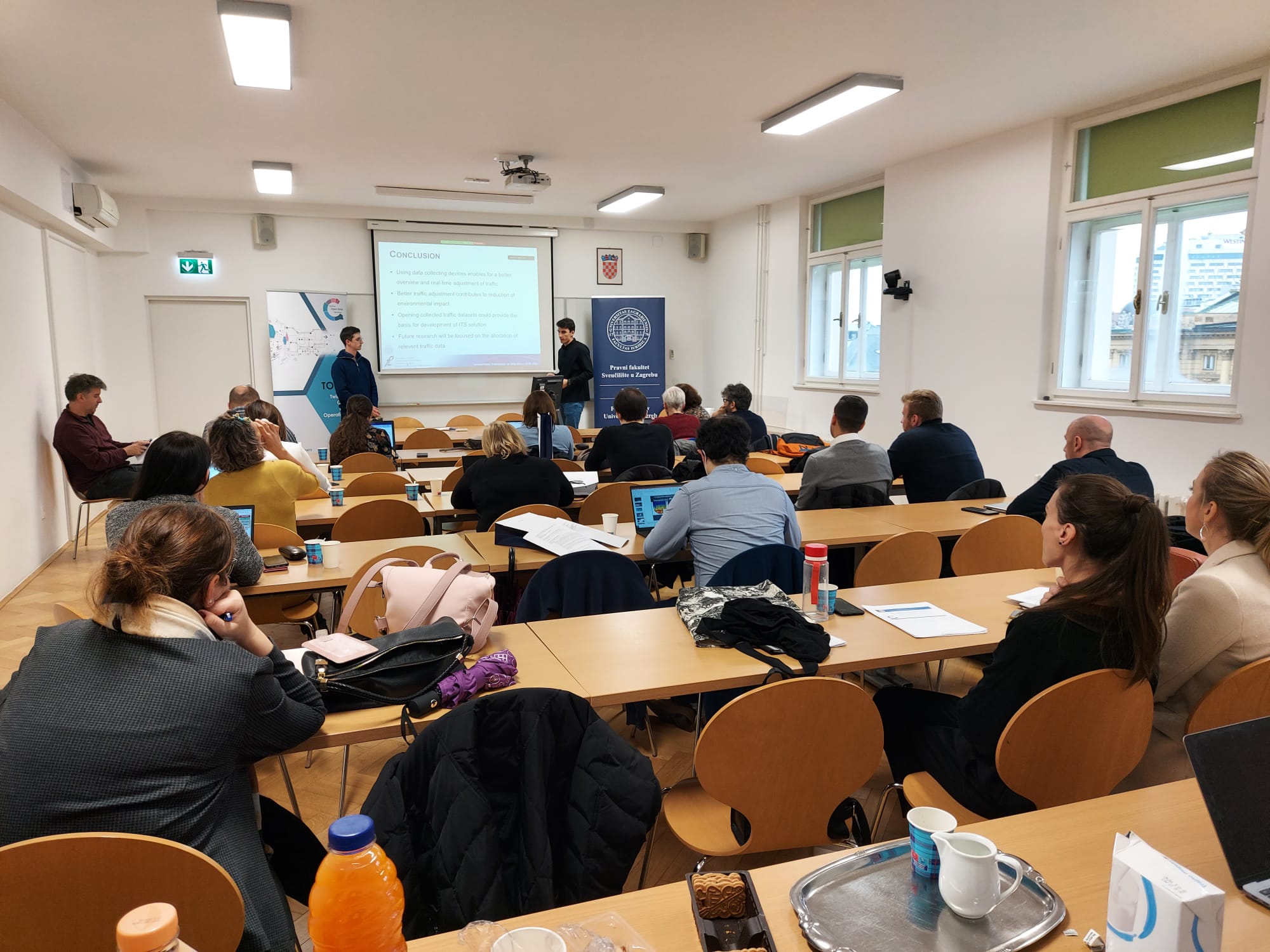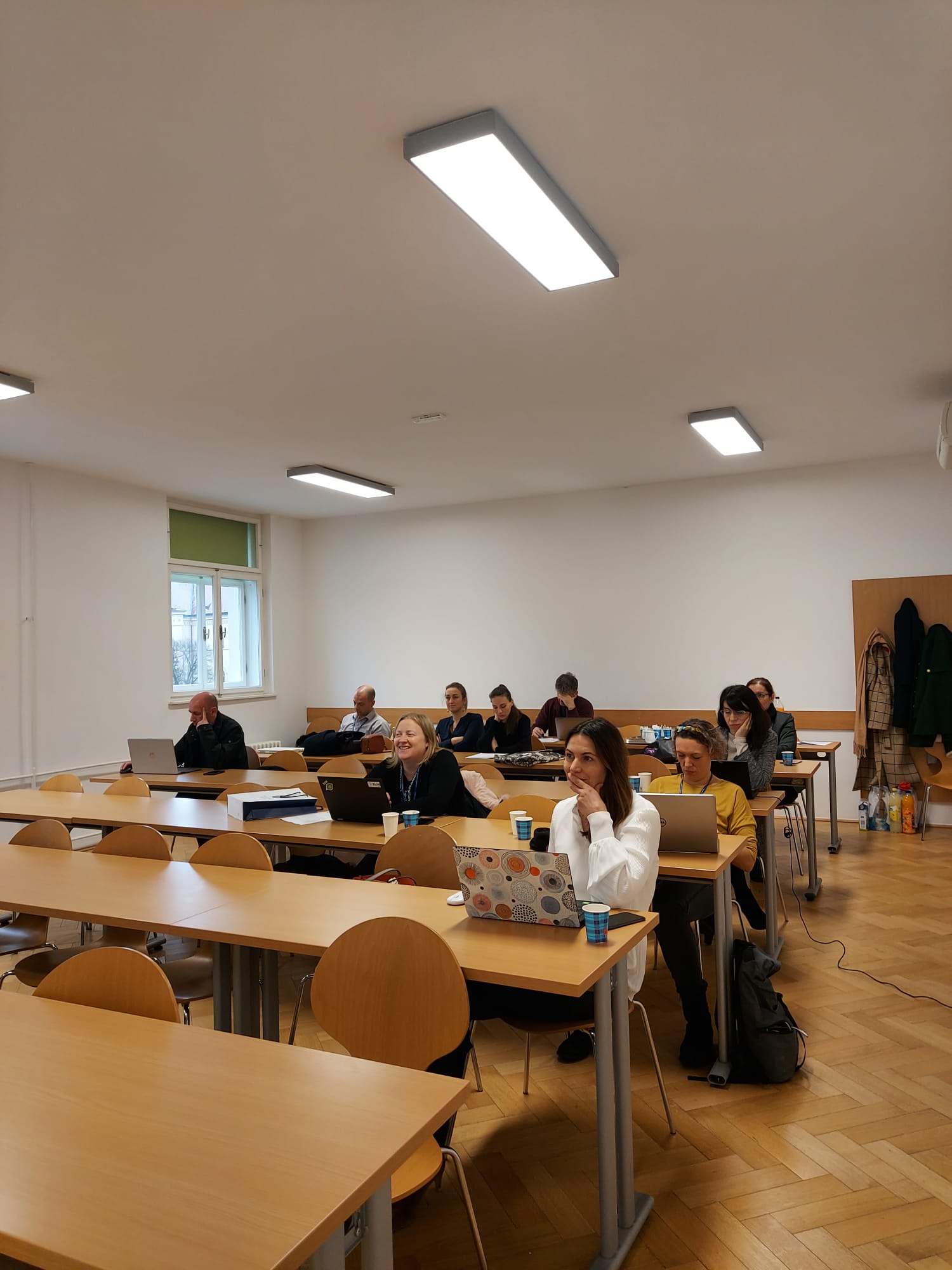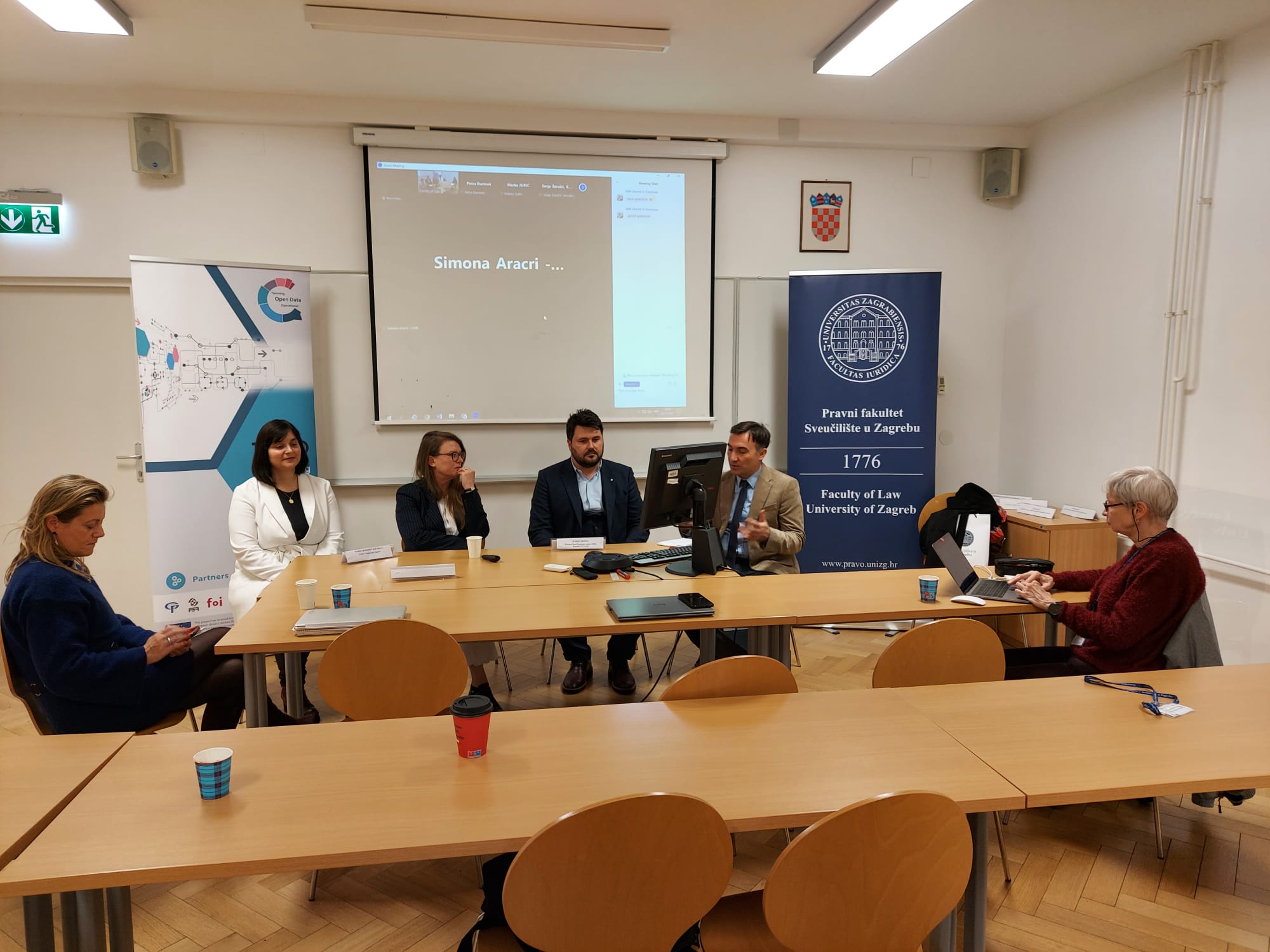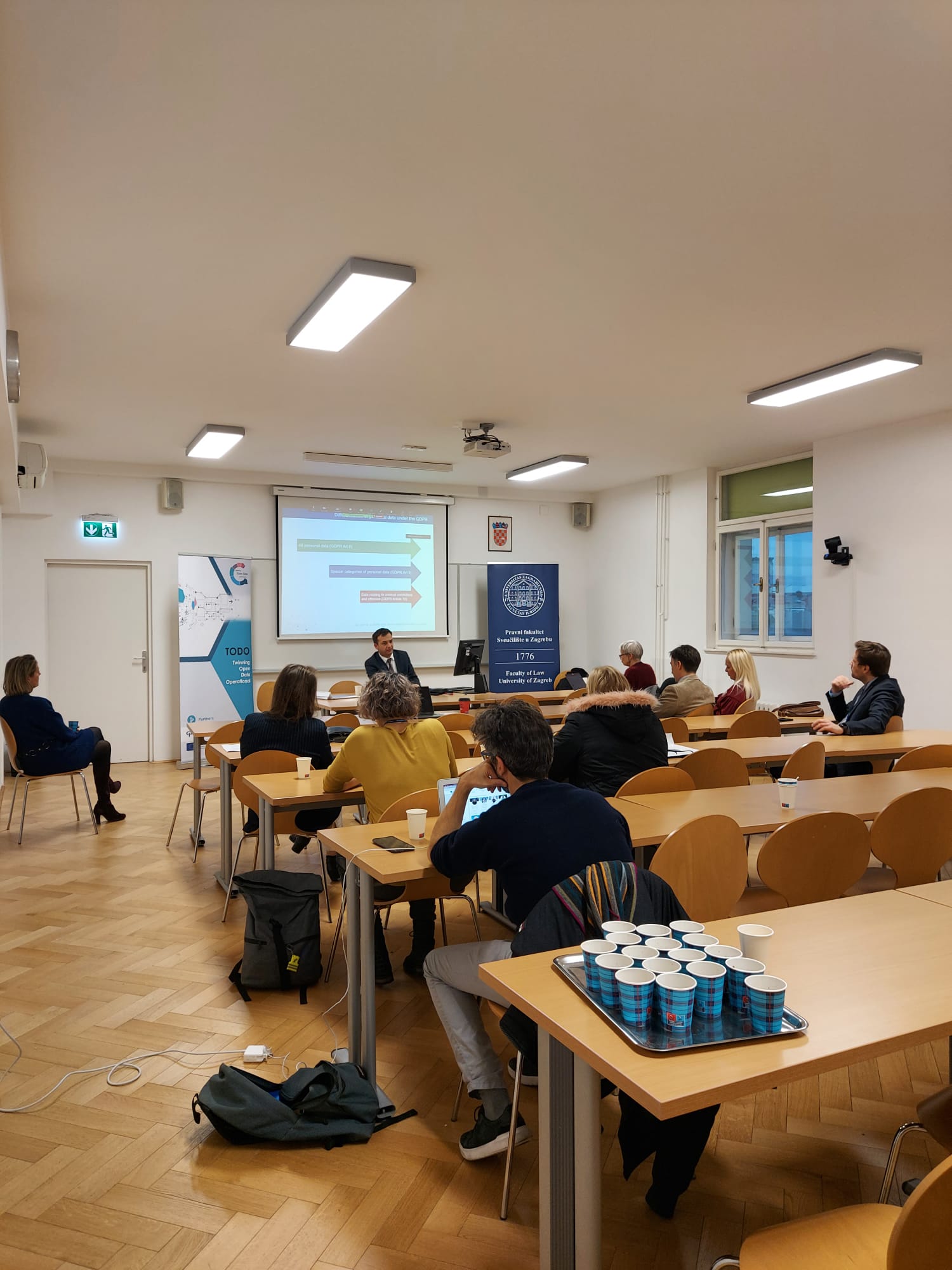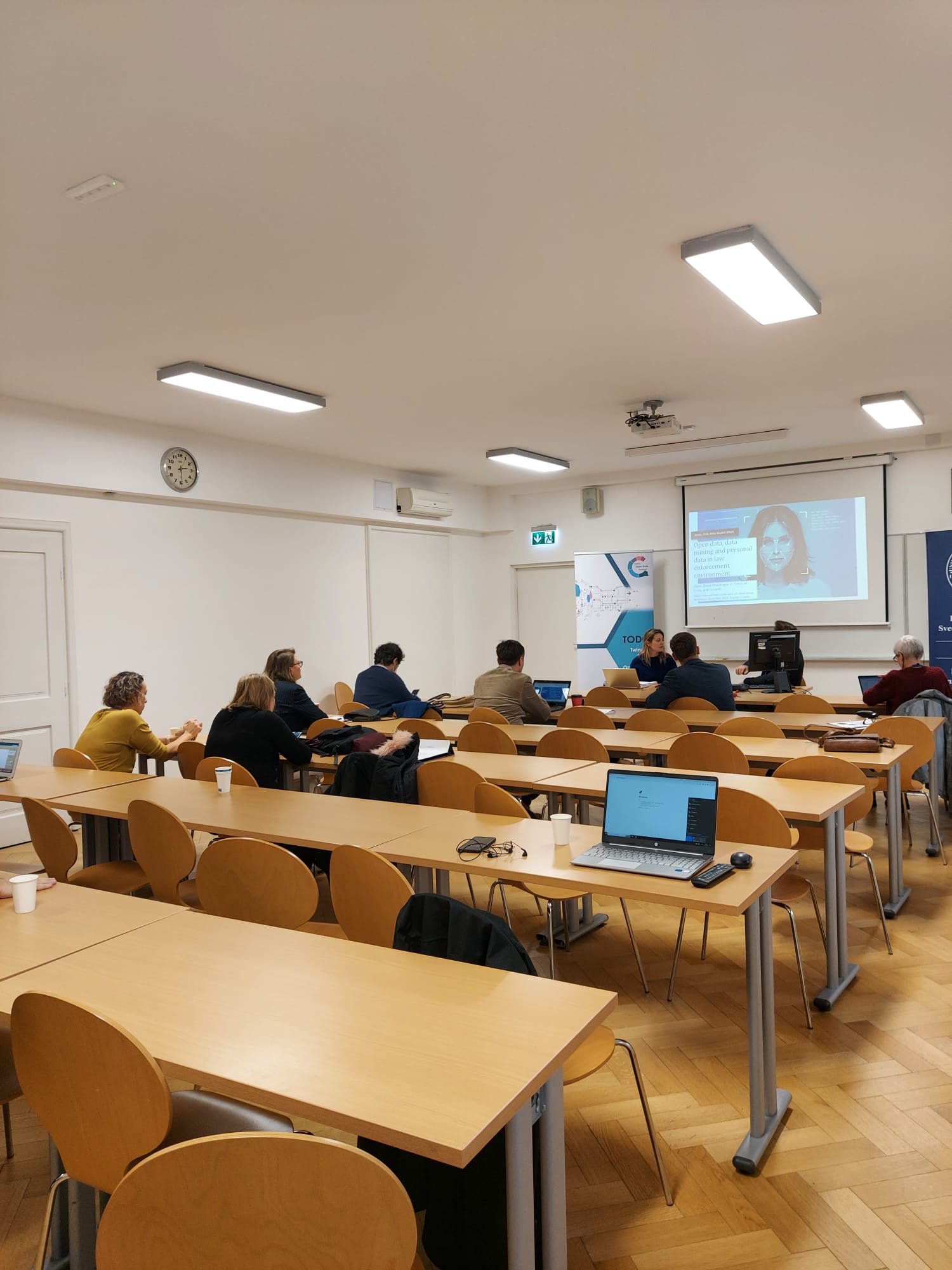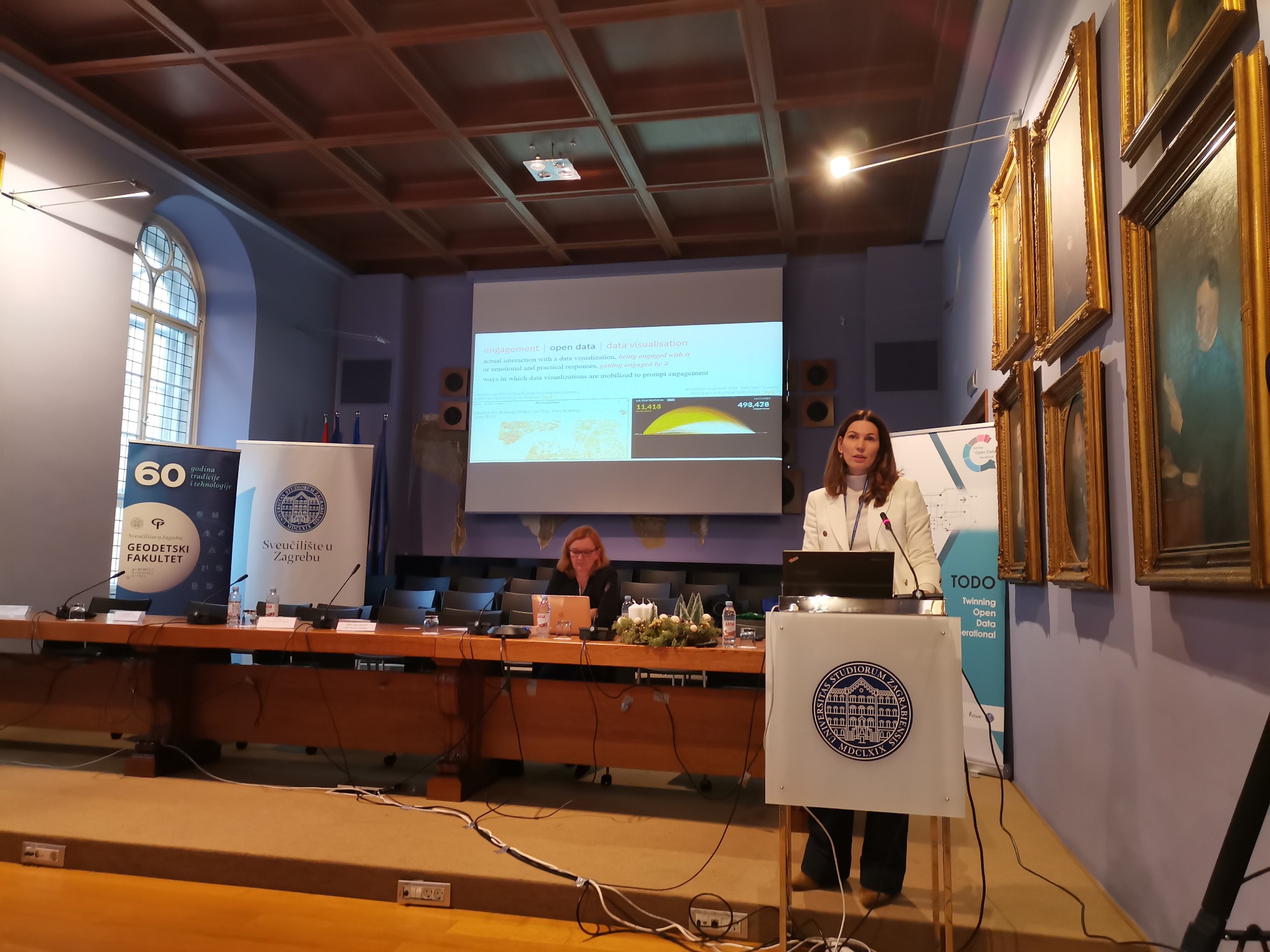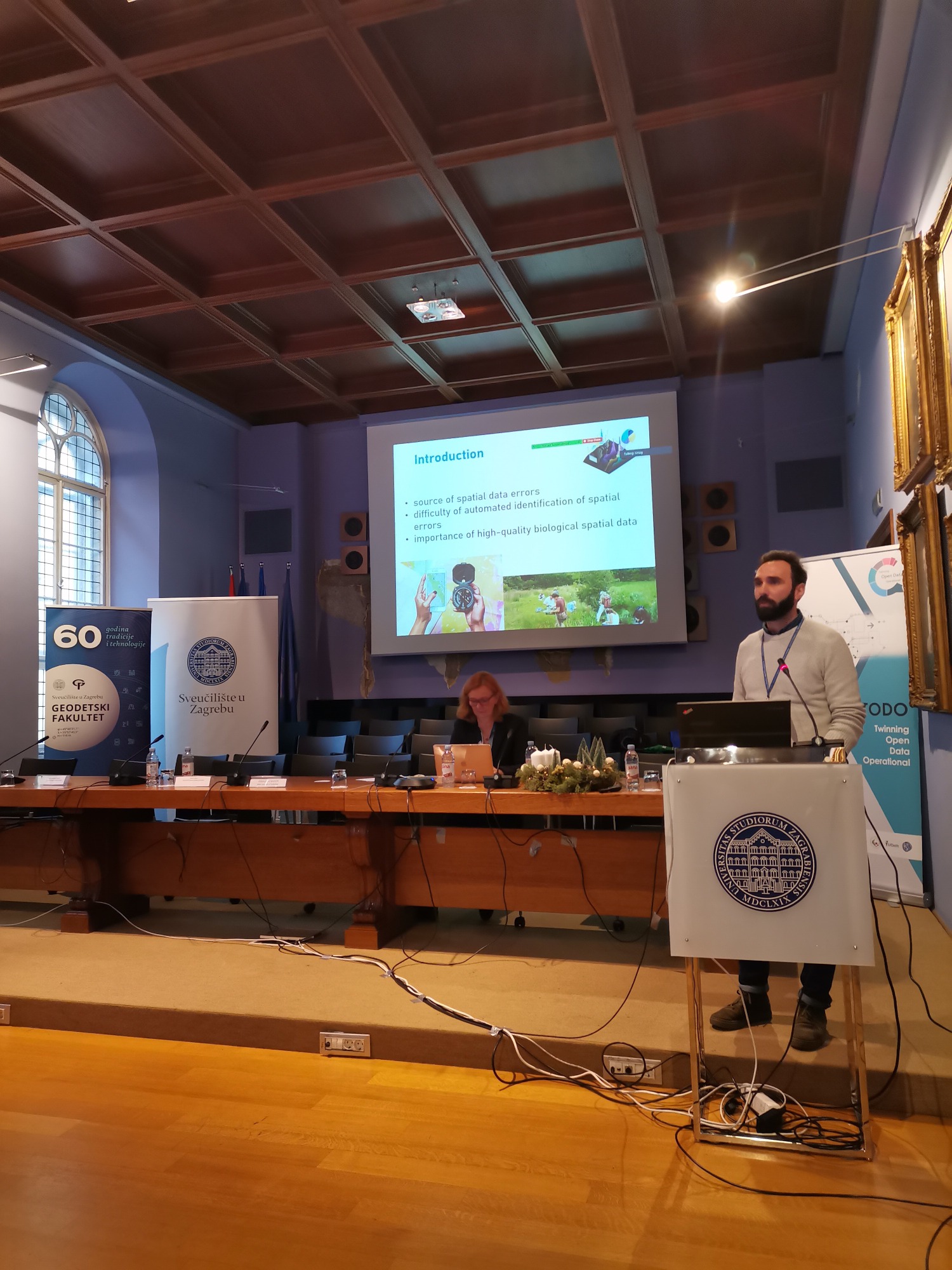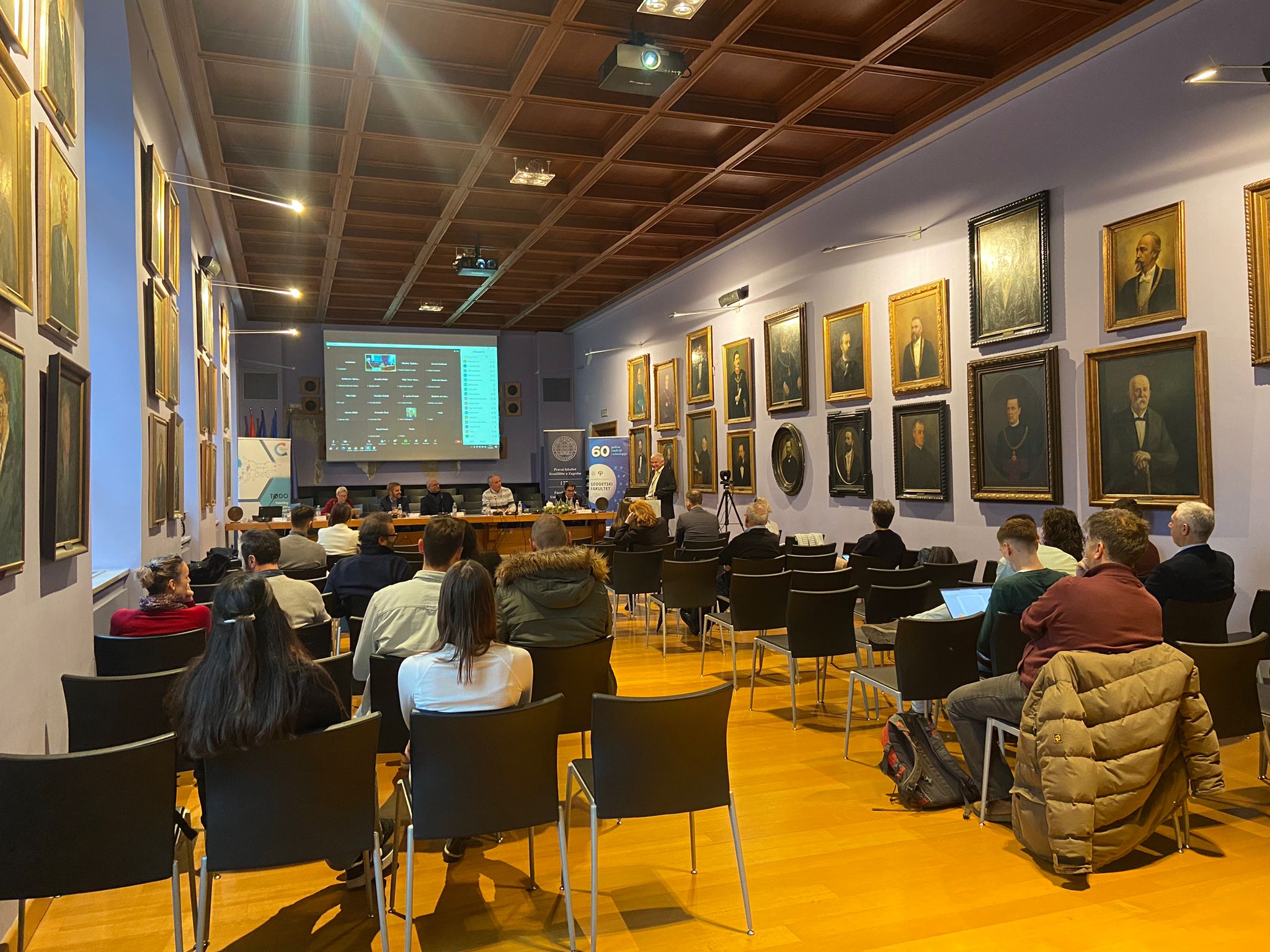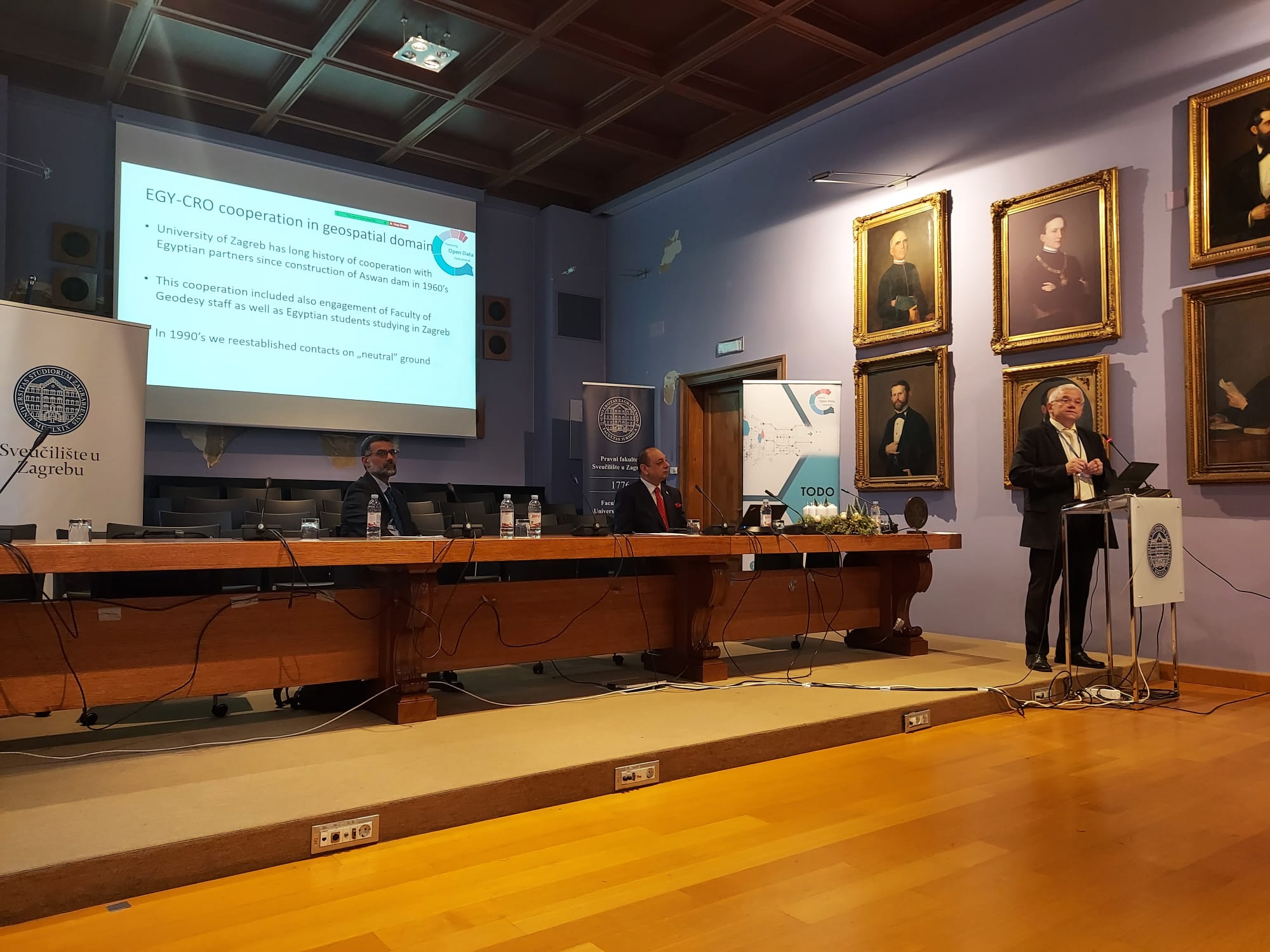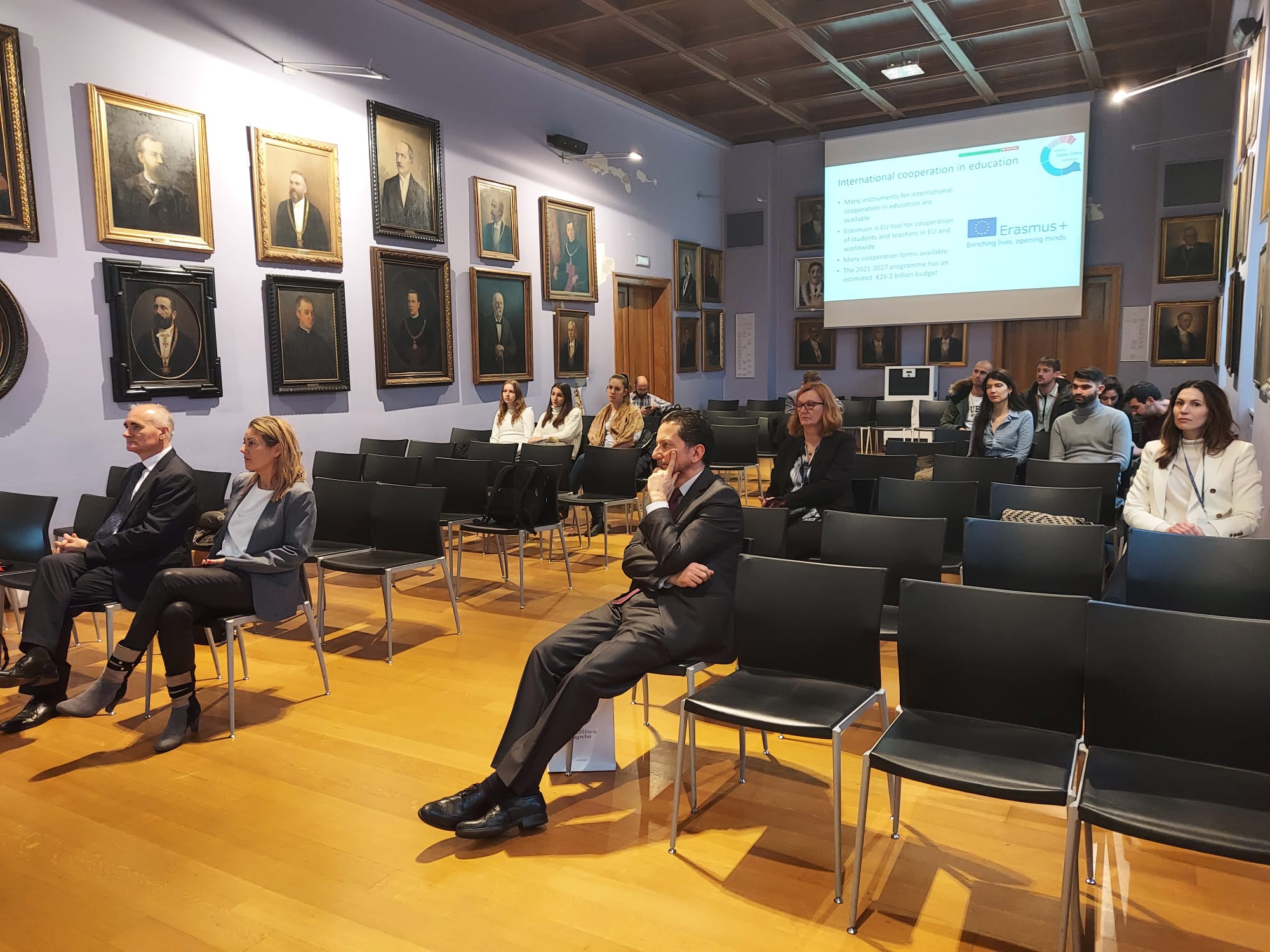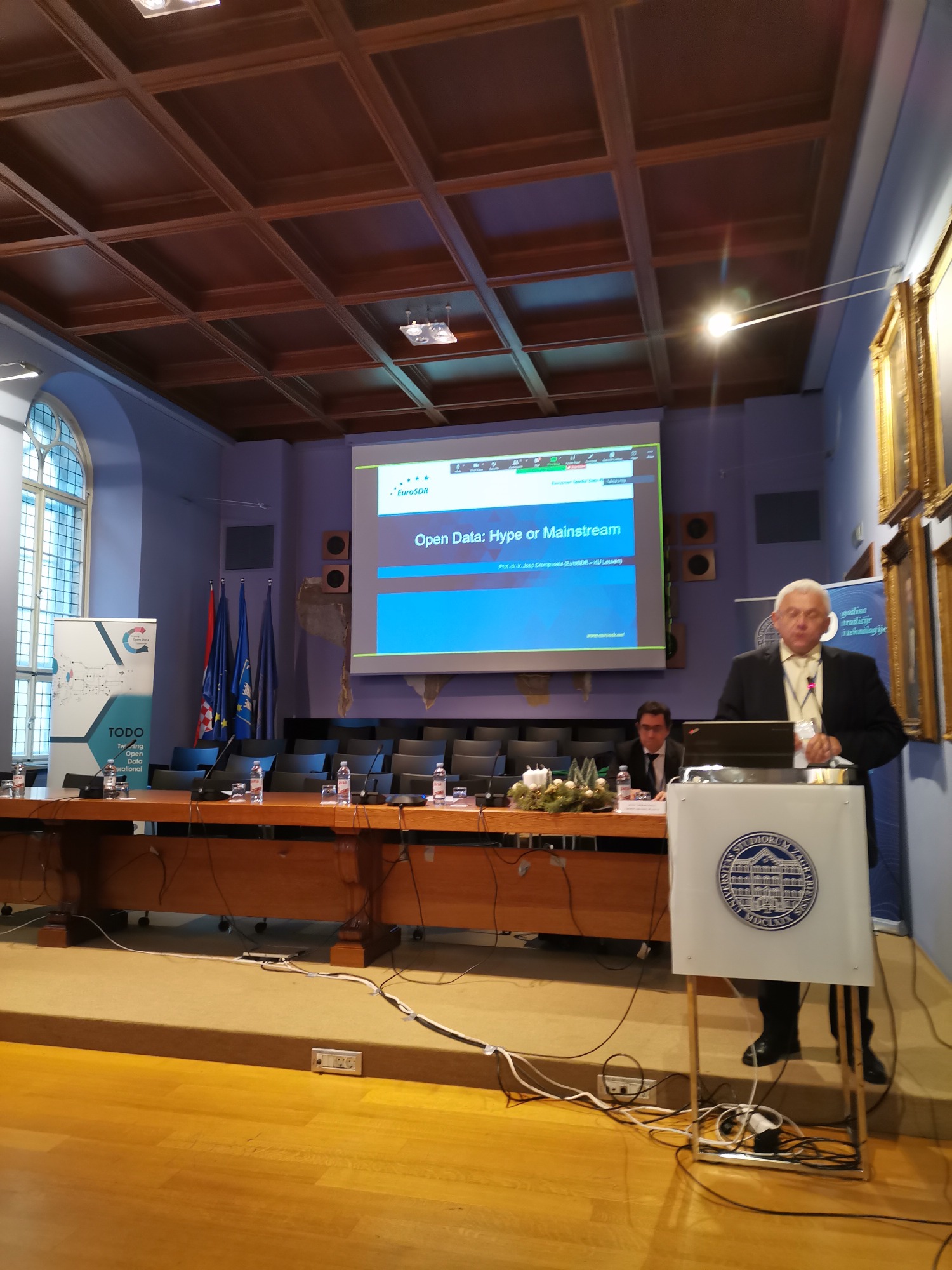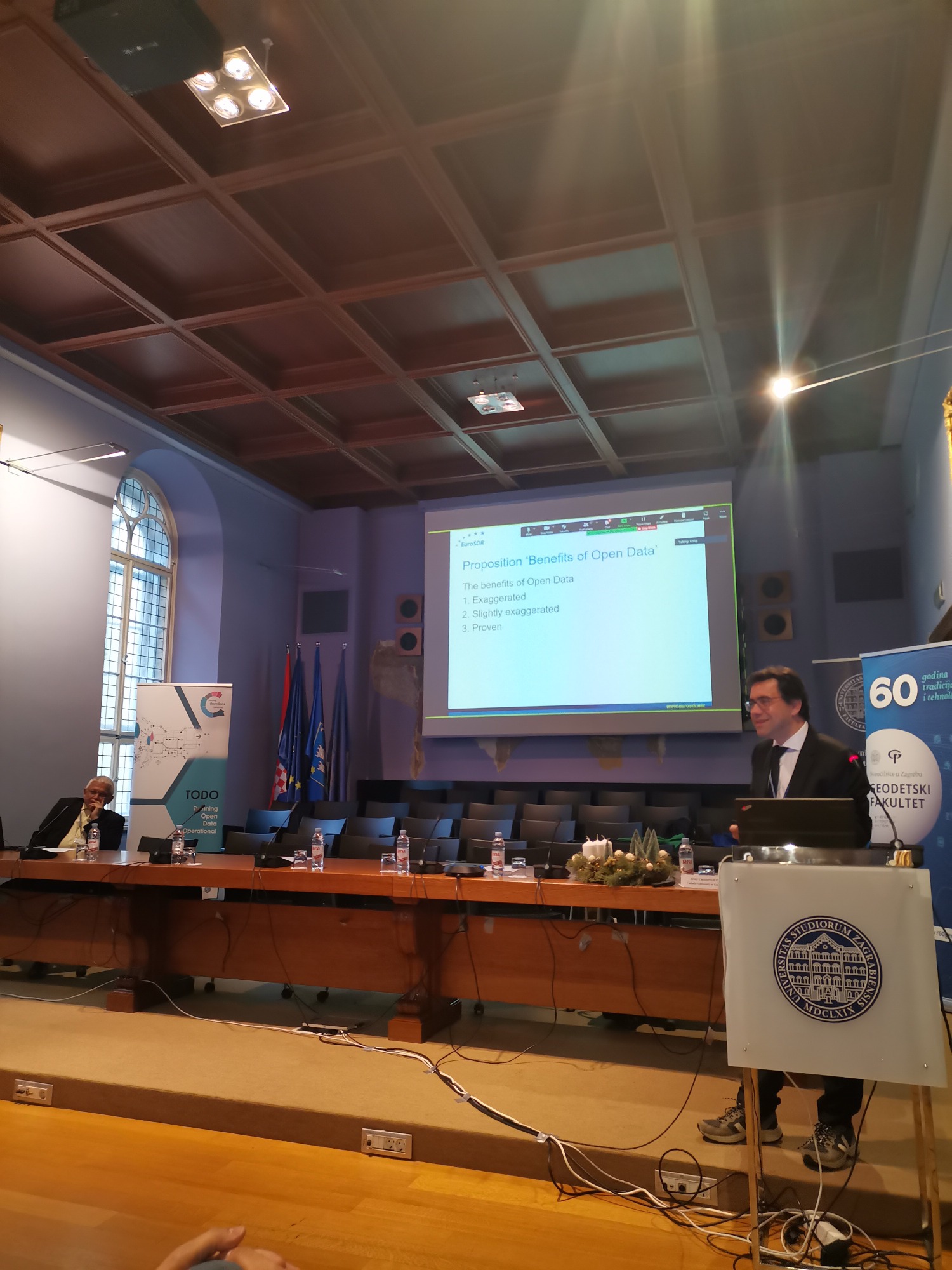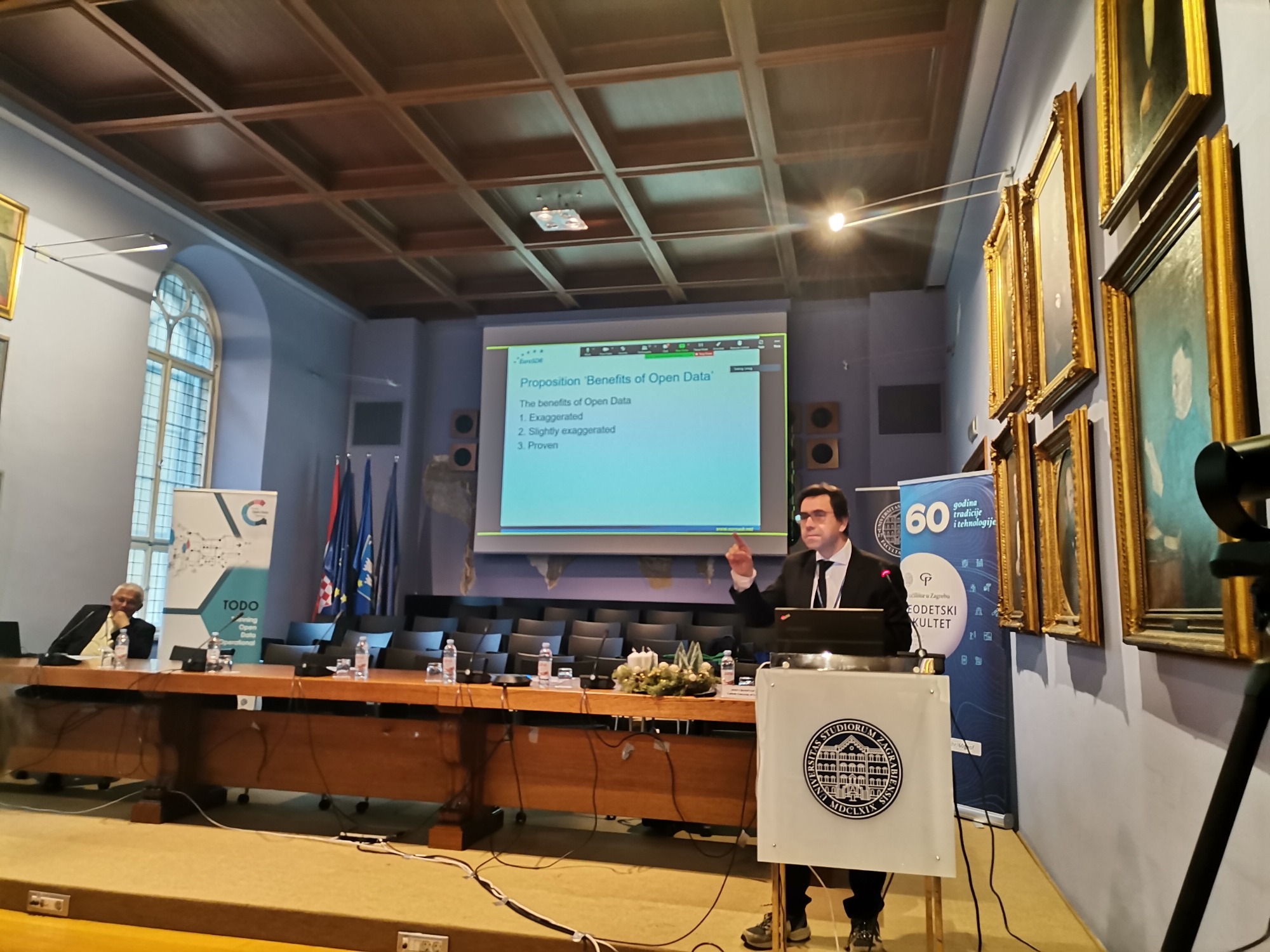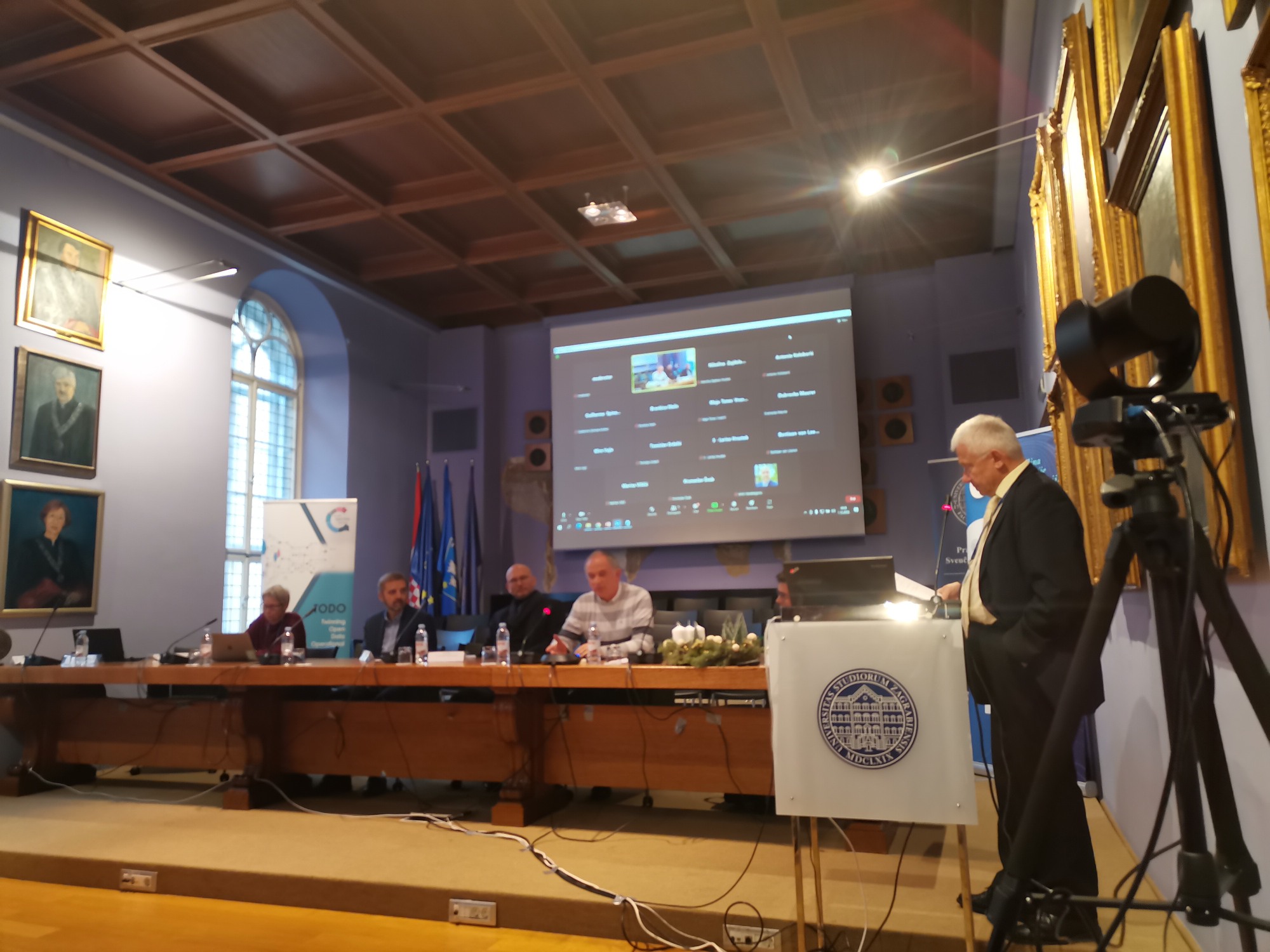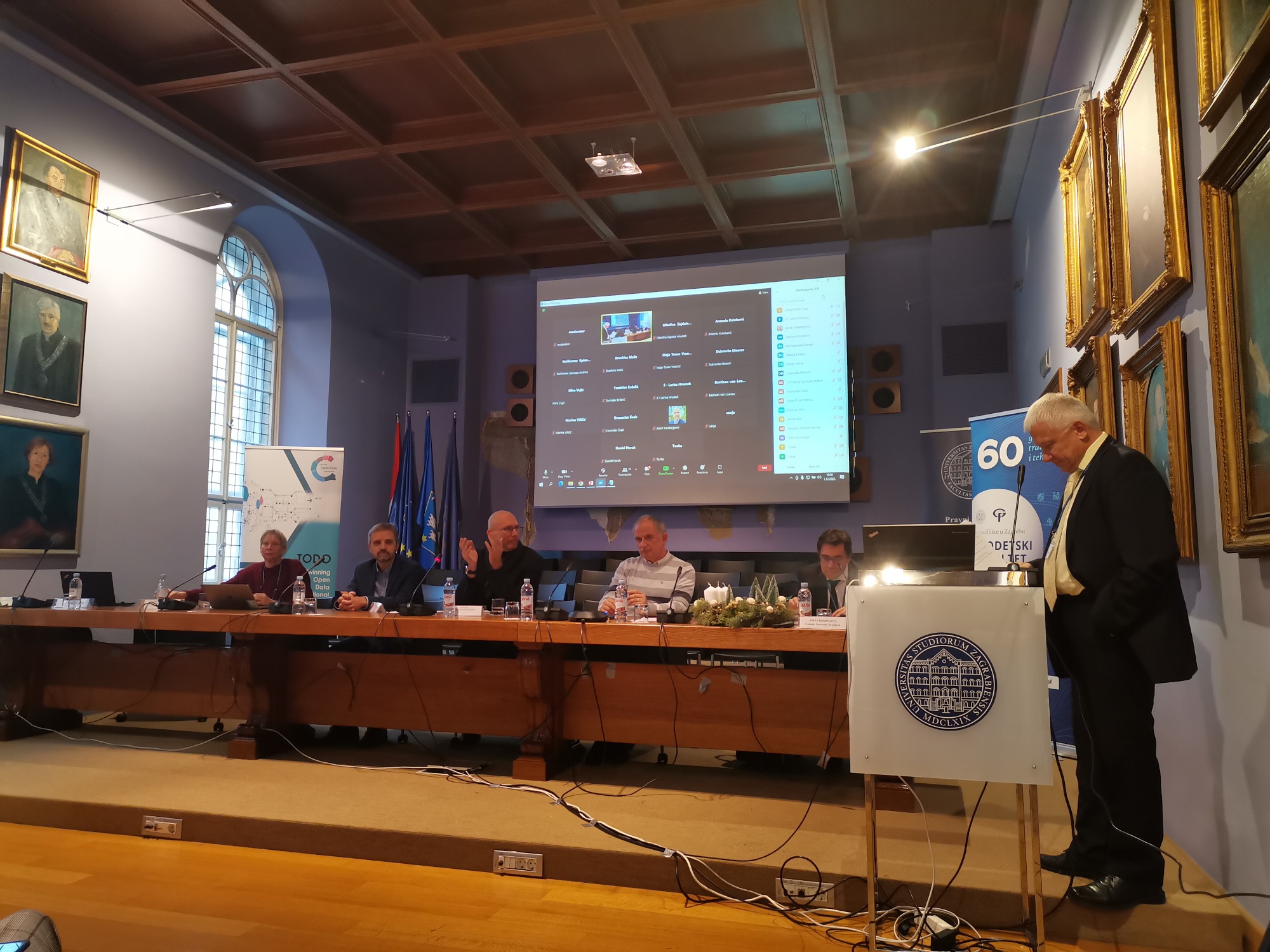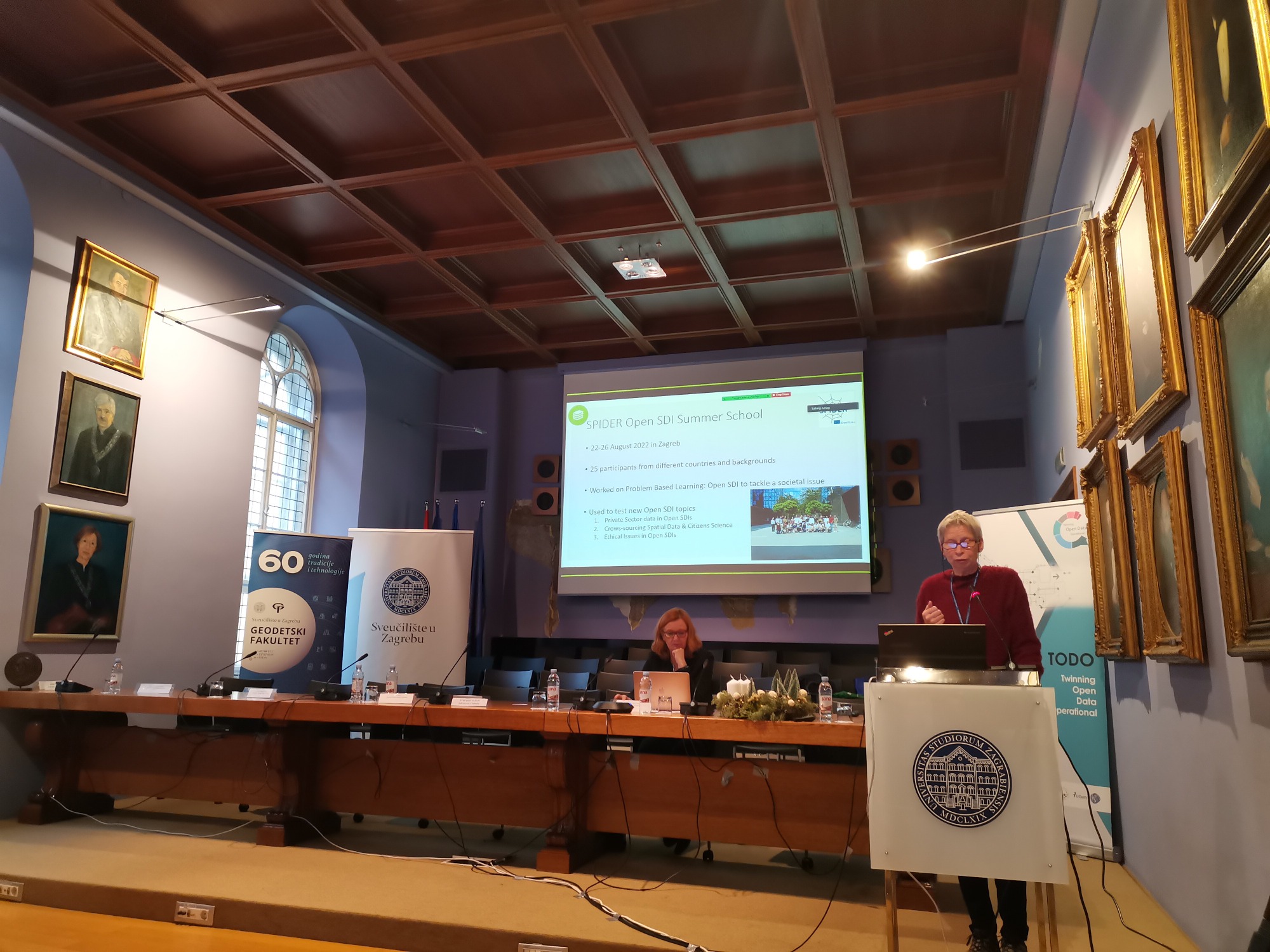Pre-Conference Day of TODO ICOD was held on Monday (28.11.2022.) where a panel on fiscal transparency and workshop on high-value datasets in progress was held.
TODO ICOD has been opened on Tuesday (29.11.2022.) by introductory speeches by Anamarija Musa and Jurica Pavičić, vice-rectors of the University of Zagreb, Almin Đapo, Dean of the Faculty of Geodesy, University of Zagreb, Elizabeta Ivičević Karas, Vice-dean of the Faculty of Law, University of Zagreb, Ana Kuveždić Divjak, Project Coordinator, Faculty of Geodesy, University of Zagreb and Hrvoje Meštrić, director of the Directorate for Science and Technology, Ministry of Science and Education, Croatia.
Following the opening session, panel on advancements in open data policies was held as well as a keynote speech by professor Marijn Janssen. Two more sessions took place on the first day of the ICOD, discussing new opportunities of open data for government and business and on the possibilities of open data to enhance transparency.
On the third day of the conference three sections were held: Open data ecosystems, Open data applications and Legal challenges to open data. In addition very interesting panel was held on the topic Open data and privacy protection: the GDPR effect revised. The European Strategy for Data, announced by the European Commission in February 2020, includes the Data Governance Act and the Data Act. By encouraging responsible access, sharing, and re-use while adhering to EU values, particularly the protection of personal data, the EU continues to create an unified digital market for data. The European Commission sought the advice of the national data protection authorities of the EU Member States due to the difficulties associated with the articulation of this new legislative framework on data with the General Data Protection Regulation (GDPR).
Joep Crompvoets gave a significant talk on the fourth day of the conference titled "Is Open Data Hype or Mainstream?" Furthermore, an intriguing panel discussed Open Data Advances and Challenges in Geospatial Society. Today, we face a situation in which the human community accumulates far more geographical data than it can handle and use due to the employment of numerous current technologies. However, a major portion of this data is not open, either because it is not available or because there is a cost to use it, leaving us in a paradoxical scenario in which we still do not have enough data to meet the needs of all users. Because open access - the availability of data - is the primary prerequisite for this development, open data represents the next stage in the evolution of the geospatial/geoinformatics civilization. In addition, two sections on Geospatial Reasoning with Open Data and International Cooperation in Geospatial Domain: Egypt-Croatia were helt.
A lecture and hands-on workshop on Open Data Mapping: Increasing the Impact of Open Data throught Visualisation and Communication was held on the final day of the conference. Furthermore, an Expert Advisory Board was set up and the paper sections Open Data, New Media, and Cultural Heritage, as well as the poster session.

.jpg)











